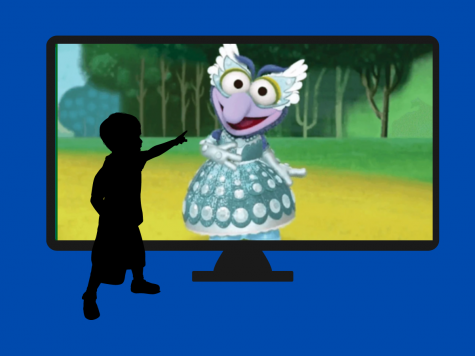Technology Evolution embraced by many leaves others in the dust
The T- ipping point to our… E- nd?
The C- hange to our H- appiness.
The N- umber O- ne L- ulluby to O- ur soul.
The G- uide to our Treasure.
A Yin to its Y- ang.
- E. C. H. N. O. L. O. G. Y.
A word spoken and focused on every single day. A word associated with frowns and curiosity. A word portrayed by many dystopian series as the main character of destruction, famine, world collision, collapse, and decay. Yet, AP Economics teacher Pete Duffer calls these claims complete idiocracy.
“Technology is a change and is going to happen, whether people like it or not,” Duffer said.
Technology teacher Joe Salvato grew up in a technology-free era. He remembers the surprise he felt with the mass number of innovations taking place in such a short period of time.
“In the 60s no one had this vision that computers could be further brought into society except Steve Jobs. When he came out with this vision everyone thought it was absurd,” Salvato said. “People couldn’t comprehend any development past the computer.”
This confusion is what uprooted the negative mantra of technology. People are sometimes reluctant to be involved with technology because of how far it’s come, yet fail to understand that humans and technology depend on each other, it’s co-evolution. We are a technology immersed society. We both are so dependent, so reliant on each other to survive that if one dies the other sinks as well.
Why do you think the Google search bar stores and relays previous searches? Why do you think you are emailed items that are similar to ones you purchased before? Why do you think your YouTube recommended page is constantly customizing, updating, and feeding specific content based on your watch history? Or the countless Snapchat filters that paint our face to hide our “imperfections” to addict us to a simulated version of ourselves?
We made technology speak the language of humans. It knows how we work, how we think, how we react. That’s always been the plan of technology; to be five steps ahead of society.
“When too normal becomes too boring people lose interest,” Duffer said.
It’s widely known that us humans have the attention span of a goldfish and fall into boredom very quickly. Knowing this, companies make sure to have “new” products lined up that are similar to previous versions and create advertisements that seize our attention.
This is explicitly stated in the eye-opening documentary, “The Social Dilemma.” This documentary encapsulates a blend of former employees that held top positions in the social media industry, many of the companies being Twitter, Facebook and Instagram in order to expose the purposeful algorithm of technology and its harmful effect on humans.
A few minutes into the documentary, former Google design ethicist Tristan Harris, says, “Technology operates just like the slot machines in Vegas. It’s not enough that you use the product consciously, I want to dig down deeper into the brain stem and implant inside of you an unconscious habit so that you are being programmed at a deeper level, and you don’t even realize it. That’s not by accident, that’s a design technique.”
We are consciously utilizing these valuables at hand yet are subconsciously being sucked into them through our own will which as a result strengthens our relationship with technology. As we evolve, technology evolves. It’s an inevitable chain that has sparked many opinions.
“Technology depends on the user. I’m more positive about technology, I don’t think we’re headed towards a type of society like the one in the book 1984, by George Orwell,” senior Mia Roque said. “Technology has helped spark mass communication, has saved lives and has sparked worldwide movements. I think the pros outweigh the cons of it.”
Like Roque mentioned, technology, like everything, contains good and bad aspects. Technology has been and is being used to expose criminals, expose wrongdoing and promote worldwide movements, which would’ve been a complete dream thirty years ago. These pros are often forgotten and disguised by the heavy, negative propaganda it receives from the older generation. This negative propaganda originates not from factual evidence, but fear. This fear has been seen throughout history because people simply cannot face change.
This same fear is now seen with technology which is understandable as older generations developed set-in-stone habits as a result of growing up in a technology-free environment. Dystopian books often feed these misconceptions by portraying the future as demolished, weakened, and technology-induced, however, these books are not meant to predict the future.
It’s crucial to stay in touch and knowledgeable with modern aspects because everything we know today is history and is the bar for the future. This piece isn’t to shed praise or degrade technology, it’s to inform what has always been known.
We are a technology immersed society, bonded in a co-evolutionary relationship. 40 years ago our present day society was a mere dream. 14 years ago the first iPhone came out. Present day, we implemented screens in our education, in our entertainment, into our routine, into our life. Closing our eyes won’t eliminate technology altogether, yet ignoring its harmful impacts is clearly not the right way forward.
The end to our beginning, the race we thought we were winning, the abnormality that collided with our normality, the wake-up call to our simulated reality. Our once untouchable masterpiece, at the edge of the universe slipping… into totality.
“We accept the reality of the world with which we are presented. It’s as simple as that.” – The Truman Show, 1998




